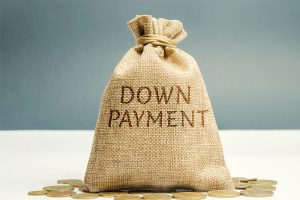The Mortgage Lending Process in Raleigh: What You Need to Know Navigating the mortgage lending…
Understanding the 0% Down Payment Program

Understanding the 0% Down Payment Program
If you’ve been keeping an eye on the mortgage industry, you might have heard about a significant new offering from United Wholesale Mortgage (UWM), the nation’s largest mortgage lender. They’ve recently launched a zero-down payment mortgage program, and it’s generating quite a buzz. For some though this initiative is stirring memories of the early 2000s housing market, which faced a significant downturn due to risky home loans. However, it’s essential to dissect this new program to understand its potential impact and differentiate it from the past.
What is UWM’s 0% Down Payment Program?
UWM’s latest offering, the “0% Down Purchase” program, allows homebuyers to purchase a property without any out-of-pocket down payment. While it might sound risky, especially given today’s high home prices and mortgage rates, the structure of this program warrants a closer look.
The program essentially operates as a 97% Loan-to-Value (LTV) loan, a common format backed by Fannie Mae and Freddie Mac. What sets this program apart is the inclusion of a 3% silent second mortgage provided by UWM. This second mortgage doesn’t require monthly payments or accrue interest. It remains dormant until the property is sold, or the first mortgage is refinanced. Borrowers can choose to repay the second mortgage anytime, but there is no obligation to do so. When the time comes to sell or refinance, the second mortgage amount will be deducted from the sales proceeds or added to the new loan amount.
Who Can Qualify for This Program?
Qualification for this program is based on either income level or first-time homebuyer status.
- Income-Based Qualification:
- Borrowers with income at or below 80% of the Area Median Income (AMI) for the property location can qualify under Freddie Mac’s Home Possible® guidelines.
- A minimum FICO score of 620 is required, and the LTV must be between 95% and 97%.
- Additionally, borrowers with income at or below 50% of the AMI are eligible for a $2,500 credit toward the down payment, which reduces the second mortgage balance. This credit does not need to be repaid.
- First-Time Homebuyer Qualification:
- First-time homebuyers who do not meet the income requirements can qualify if they adhere to Freddie Mac’s HomeOne® and UWM’s guidelines.
- A first-time homebuyer is defined as someone who has not owned a home in the past three years.
- These buyers must have a FICO score of at least 700, and the LTV must be greater than 95%, up to a maximum of 97%.
Maximum Purchase Price and Loan Details
The maximum purchase price under this program is capped at $500,000, due to the 3% credit limit of $15,000. This translates to a loan amount of $485,000 at 97% LTV, with the silent second mortgage set at $15,000.
This program features a 30-year loan term with no monthly payments on the second mortgage and no interest accrual. The second mortgage will be due in a lump sum when the property is sold, or the first mortgage is refinanced.
Potential Impact and Risks
This innovative program potentially opens the door for many buyers who may have been unable to afford a home otherwise. However, it’s crucial to consider the potential risks. The primary concern revolves around the increased risk of default if home values decline or if the borrower’s financial situation changes. However, the program’s structure, focusing on responsible lending practices, aims to mitigate these risks.
Conclusion
UWM’s 0% Down Purchase program offers a unique opportunity for homebuyers with limited funds for a down payment. While it recalls the subprime mortgage crisis of the early to mid 2000’s, its design and qualification criteria suggest a far more cautious approach. Prospective buyers should carefully evaluate their financial situation and consider long-term implications before opting for this program.
This initiative reflects UWM’s strategy to boost home purchase loan volumes while providing new opportunities for responsible borrowers. As always, consulting with a knowledgeable mortgage professional can help you navigate the complexities of this and other mortgage programs.
For more information or to see if you qualify in North Carolina, feel free to contact us at Certified Home Loans. We are here to help you make informed decisions about your home financing options.




